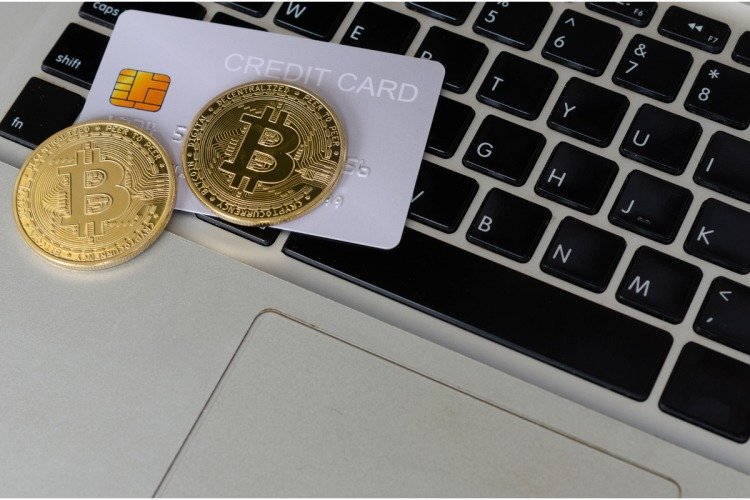Are Regulatory Crackdowns Shaking User Confidence in Crypto Cards?

Crypto cards like the Bybit Card have become a popular way for people to spend their cryptocurrency. Still, recent regulatory crackdowns on exchanges are raising concerns.
As governments around the world step up regulations on crypto exchanges, users are starting to wonder: Are these crackdowns shaking user confidence in crypto cards that are tied to these platforms? Let’s dig into how these actions could affect user trust and the future of crypto cards.
What Are Crypto Cards?
Before diving deeper, let’s talk about what crypto cards are. Crypto cards function like regular debit or credit cards. Still, instead of being tied to a traditional bank account, they’re linked to a cryptocurrency wallet.
These cards allow users to spend their Bitcoin, Ethereum, or other digital currencies directly at retail stores or online. They automatically convert crypto into fiat currencies like dollars or euros, making it simple for crypto enthusiasts to use their holdings in everyday transactions.
Companies like Bybit, Binance, and Coinbase offer these cards, usually in partnership with Visa or Mastercard. For many, crypto cards are a convenient bridge between cryptocurrency and traditional finance.
The Growing Impact of Regulatory Crackdowns
In recent years, regulators across the globe have been tightening the rules on cryptocurrency exchanges. Governments concerned about money laundering, tax evasion, and fraud are increasing oversight.
This has led to some exchanges being fined, shut down, or restricted from certain activities. For example, Binance faced regulatory action in several countries, including the U.S., the U.K., and Japan.
While these actions are primarily aimed at exchanges, they have a ripple effect that could impact crypto cards. Since these cards are often tied to exchange accounts, any problems that arise at the exchange level can trickle down to the cards themselves.
Why Are Governments Cracking Down?
The cryptocurrency market has grown rapidly, attracting both everyday investors and bad actors. Unfortunately, the decentralized and somewhat anonymous nature of crypto has led to issues like fraud, money laundering, and illegal transactions. Governments are responding by tightening regulations to make the space safer for investors.
These crackdowns aim to ensure that cryptocurrency exchanges comply with laws related to Anti-Money Laundering (AML) and Know Your Customer (KYC) policies. The idea is to make it harder for criminals to hide illicit gains and protect legitimate users from scams.
However, for users who rely on crypto cards, these actions could cause uncertainty about whether their cards will continue to work smoothly.
How Do Crackdowns Affect Crypto Cards?
When a regulatory body takes action against a crypto exchange, it can create a number of problems for users. Let’s break down some of the key ways this can impact crypto cards.
1. Card Functionality Issues
If an exchange faces legal trouble or has its operations suspended, crypto cards tied to that platform could stop functioning. Users might be unable to access their funds or make payments, leading to frustration and financial inconvenience.
For instance, if an exchange is forced to freeze accounts or suspend services temporarily due to a regulatory investigation, cardholders might be left in the lurch. This can lead to a loss of trust in the card, especially for users who rely on it for everyday purchases.
2. Increased KYC and AML Requirements
Stricter regulations often mean that crypto platforms are required to beef up their KYC and AML checks. Although these precautions are necessary for security, they may also complicate the onboarding process for users. People who once enjoyed the relative ease of signing up for a crypto card may now face longer verification times or more invasive identity checks.
This added friction could deter some users, especially those who were drawn to crypto for its convenience and privacy.
3. Potential for Higher Fees
As exchanges and card providers adapt to new regulations, they may pass on some of the costs to users in the form of higher fees. Increased compliance costs, legal fees, and operational changes could all contribute to higher transaction or maintenance fees for cardholders.
For those who use crypto cards as a cost-effective way to spend their digital assets, this could be a significant drawback. The higher the fees, the less appealing the card becomes for daily transactions.
Does This Erode Trust?
All of these potential impacts contribute to a broader question: Are regulatory crackdowns eroding user confidence in crypto cards?
For some users, these crackdowns could increase trust in the long run. After all, stronger regulations can mean more security and less risk of fraud or hacking. Users may feel safer knowing that the government is stepping in to protect their investments.
However, for others, the uncertainty and disruptions caused by regulatory actions might make them think twice about relying on a crypto card. The possibility of their card being suddenly suspended or their funds locked can create anxiety, which could lead to a drop in usage.
The Future of Crypto Cards
Despite these challenges, crypto cards are likely here to stay, at least for the foreseeable future. The convenience of being able to spend crypto like fiat money is a powerful draw. As the market matures, we may see more stable and secure options emerge.
Regulations are expected to become more consistent across different regions, which could make it easier for crypto card providers to navigate the legal landscape. In the meantime, users may become more selective about which platforms they trust, favoring those with strong compliance records and clear regulatory backing.
Conclusion
So, are regulatory crackdowns shaking user confidence in crypto cards? It depends on the user. While some may welcome the added security, others might feel uneasy about the potential for disruptions or higher costs.
As the regulatory environment evolves, crypto card users will need to weigh the risks and benefits carefully. Ultimately, those who stick with crypto cards may find that, with time, the industry becomes more stable and reliable.